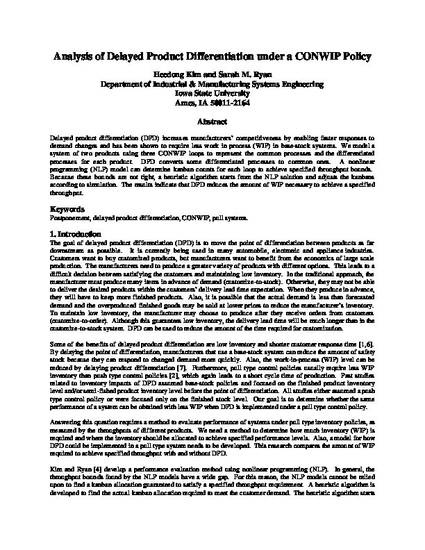
Delayed product differentiation (DPD) increases manufacturers’ competitiveness by enabling faster responses to demand changes and has been shown to require less work in process (WIP) in base-stock systems. We model a system of two products using three CONWIP loops to represent the common processes and the differentiated processes for each product. DPD converts some differentiated processes to common ones. A nonlinear programming (NLP) model can determine kanban counts for each loop to achieve specified throughput bounds. Because these bounds are not tight, a heuristic algorithm starts from the NLP solution and adjusts the kanbans according to simulation. The results indicate that DPD reduces the amount of WIP necessary to achieve a specified throughput.
Available at: http://works.bepress.com/sarah_m_ryan/102/

This is a proceeding published as Heedong Kim and Sarah M. Ryan; Analysis of Delayed Product Differentiation under a CONWIP Policy; IIE Annual Conference. Proceedings. 2003. Posted with permission.